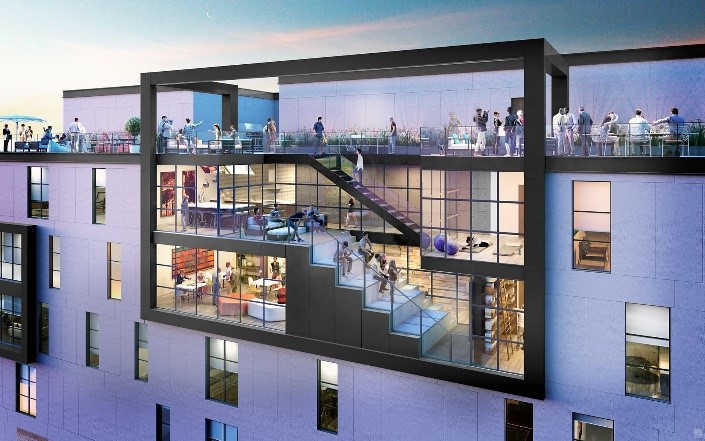The Future of Smart Homes: A Glimpse into the Next Generation of Intelligent Living

As technology continues to advance at an unprecedented pace, the concept of smart homes has become increasingly prevalent in our society. With the integration of artificial intelligence (AI), Internet of Things (IoT), and automation, the future of smart homes holds immense potential to revolutionize the way we live. In this blog post, we will explore the exciting possibilities and advancements that await us in the realm of smart homes.
- Seamless Integration of Devices and Systems:
In the future, smart homes will be characterized by seamless integration of various devices and systems. Imagine waking up to an alarm that not only gently rouses you from sleep but also adjusts the temperature, opens the blinds, and brews your favorite cup of coffee. This level of integration will be made possible through AI-powered systems that learn your preferences and adapt to your daily routines. - Enhanced Energy Efficiency:
One of the key benefits of smart homes is their potential to significantly reduce energy consumption. In the future, smart homes will utilize advanced sensors and algorithms to optimize energy usage. For example, smart thermostats will learn your temperature preferences and adjust accordingly, while smart lighting systems will automatically turn off when a room is unoccupied. These energy-saving features will not only benefit the environment but also result in substantial cost savings for homeowners. - Personalized Health and Wellness:
Smart homes of the future will prioritize the health and well-being of their occupants. Integrated health monitoring systems will track vital signs, sleep patterns, and activity levels, providing valuable insights into personal health. AI algorithms will analyze this data and offer personalized recommendations for improving overall well-being. For instance, the smart home may suggest adjusting the lighting or temperature to promote better sleep or remind you to take breaks during prolonged periods of inactivity. - Enhanced Security and Safety:
Security will be a paramount concern in future smart homes. Advanced security systems will utilize facial recognition, biometric authentication, and AI-powered surveillance to ensure the safety of occupants. Smart locks will grant access only to authorized individuals, while AI algorithms will detect and alert homeowners of any suspicious activities. Additionally, smart homes will be equipped with advanced fire and carbon monoxide detection systems, providing early warnings and potentially saving lives. - Seamless Integration with Smart Cities:
The future of smart homes extends beyond the confines of individual dwellings. As smart cities continue to develop, smart homes will seamlessly integrate with the broader urban infrastructure. For example, smart homes will communicate with smart grids to optimize energy consumption based on city-wide demand. They will also interact with transportation systems, allowing for efficient commuting and reducing traffic congestion.
Conclusion:
The future of smart homes holds immense potential to transform our lives, offering convenience, energy efficiency, personalized health monitoring, enhanced security, and seamless integration with smart cities. As technology continues to evolve, the possibilities are endless. Embracing the advancements in AI, IoT, and automation, we can look forward to a future where our homes are not just smart but truly intelligent, catering to our every need and enhancing our quality of life.
